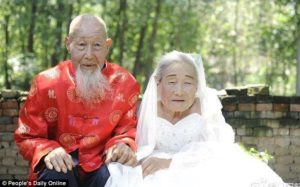
New! Listen to an AI generated podcast summary and discussion of this article . . .
Around 2004 Dr. Yang asked me to take over teaching responsibilities for the Champaign Urbana taiji (tai chi) school that he started while a doctoral candidate at the University of Illinois. Of course nobody could fill his shoes, and I was a bit nervous about leading the group.
On the first day an older lady, who had been a student for a while and was apparently suspicious of my credentials, asked me directly: are you a master? I replied “I am Scott, Dr. Yang’s student.” To my recollection she did not return to class after that day. 🙂
Eastern culture deeply values teachers and education. In northern China taiji instructors are respectfully addressed as “laoshi,” meaning teacher. Those very close to the teacher and who have studied with them a long time are allowed to call the teacher “shifu,” which means teacher/father. Just as one would not lightly call anyone father, it would be considered a faux pa to refer to a taiji teacher as shifu before a true familial parent/child relationship exists. The southern Chinese tradition is a bit different – they use the term shifu (sifu in Cantonese) a bit more like the northern Chinese use laoshi.
The word for master in Chinese is “dashi,” which literally translates as great teacher. I have been exposed to quite a bit of taiji tradition, but have never observed a Chinese student addressing their teacher in person as dashi – only laoshi or shifu.
In America, however, there is no cultural equivalent of the Chinese tradition of respectful address to all teachers as laoshi. Everyone, though, knows the word master, which first and foremost in the West implies extraordinary, if not unsurpassed, ability. Certainly the lady who left my class did not want to study with anyone who was not, in her mind’s eye, a master. 🙂
I later pondered my own definition of what would constitute a master. With tongue planted at least partly in cheek, here is what I came up with.
Yin/yang theory tells us that everything is relative. But certainly we cannot leave it as a relative measure of ability only. Statistically, half of the people who practice taiji are relatively more advanced than the other half. That would just be too many masters. But how far to the right of the average on the distribution curve do we draw the line delimiting a master? And how would anyone’s rightful placement on the distribution curve be determined? In terms of relative ability, we are left with subjective opinion only. (At least since the olden days of being expected to plant your flag in the public square and fighting all challengers for a certain period of time. Not advocating this in the least, but as there is a bit of good in all bad things it would at least decrease the number of claimed masters.)
And certainly it cannot be a self-appointed title. There is a famous traditional saying “beyond this mountain there is another mountain, beyond this master is another (more achieved) master.” This saying not only communicates the relativity of achievement between practitioners, but also the recognition that all serious students of the art continue to learn regardless of their level – their achievement is relative within their own lifetime. I have reservations about anyone who claims to have mastered the art. (Or achieved “enlightenment,” which, again, must be a relative term.) The wisdom and humility of any master of this holistic mental, physical, and spiritual art would surely preclude them from claiming mastery. And for sure taiji and qigong have suffered in the public eye from the proliferation of self-appointed masters. I therefore resolved part 1 of my own personal definition, stated as a negative:
anybody who calls themselves a master (or the more grandiose “grandmaster”) is not a master.
So if not self-appointed, it must be an awarded title. But who, then, awards the title? Everyone wants their teacher to be a master, a wise guru. All too often, the answer to the question “who is a master” is “why, of course, my teacher/guru/leader is.” A phenomena not in the least unique to taiji :-). This is not a statement of the teacher’s qualifications as much as a statement of who the teacher needs to be so that the student can feel as though they are receiving the best.
If bias precludes students from pronouncing their teacher a master, we are still left with the question of who would award the title. Another famous traditional saying is: “taiji is a “little dao” from which one may glimpse the “big Dao,” which alludes to purpose and achievement beyond the physical. It would have to be someone who knows the nominee very well – who could speak not only of their physical ability, but of the flawlessness (who wants a flawed master?) of their character, virtue, integrity, wisdom, and life lived in harmony with themselves and others. Someone who has known them well, for a long time. Hence part 2 of my own personal definition:
you are a master if your spouse/significant other refers to you as a master
I’m afraid I have to report that I don’t qualify as a master – over the years I appear to have headed in the wrong direction. 🙂
So what is your definition of a master?

-Scott (call me whatever you like) Grubisich

Seeking to attain Mastery seems a foolish thing. Perhaps you can master a technique — but then, even though you’ve mastered that technique, there remains more to learn about it/from it. Since there is no end to learning, perhaps there is no Master.
But, if you have learned more than others, and have also learned how to teach others, than those people can learn from you. I am honored to have the privilege of studying with you – whether Northern Laoshi, or Southern Shifu, you are a good teacher.
i really liked this well written.
In my thoughts, I see a great master as always being “a student”. When one no longer learns, they no longer exist on this planet… I am a student.. and that is my thoughts
That was a WONDERFUL article Scott, whether Shifu or Dashi or Laoshi; you, have respected me and assisted me and I am loyal to your talents and practice!
Jing,
Geoff